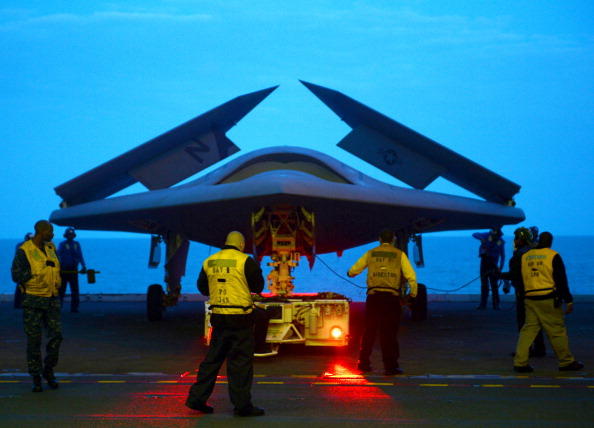In 2019, the Peter G. Peterson foundation reported that at $649 billion, the U.S. spends more on defense than the next seven countries combined. However, as the world continues to evolve, so does the military-industrial complex.
With digital technologies emerging as their own industry, tech companies have become heavily involved with developing military technology. Tech writer Navneet Alang described it as a “military-technology complex” designed to replace the military-industrial complex of the 20th century. Others have described it as the “military-technological complex,” “military-digital complex,” or “military-AI complex.”
Although the phenomenon may currently be too new for everyone to have a single unified term, the questions surrounding it remain the same. Namely, what business does big tech have in developing weapons of war for the U.S. government?
There is nothing benevolent about war; especially ones launched by a nation founded through the genocide of enslaved Africans and those indigenous to the country it colonized. A 2018 report by Brown University’s Watson Institute for International and Public Affairs found that the so-called War on Terror resulted in the deaths of between 480,000-507,000 people in Afghanistan, Pakistan, and Iraq. The biggest concerns with the emerging partnerships between tech and the military revolve around how these weapons will cause further harm.
Workers at tech companies who partner with the military have spoken out against their employers.
In 2018, Google employees wrote a letter to the company’s CEO, Sundar Pichai, after learning that Google had entered a contract with the Department of Defense. Project Maven, as it was called, included plans to develop drone AI technology for the military. Within the letter, employees stated that “Google should not be in the business of war.” Employees also called upon Google’s company motto: “Don’t Be Evil.”
Although Google ended up pulling out of the contract, it’s not the only tech company partnering with the military. Earlier this year, Anduril Industries signed on to work on Project Maven. The firm itself focuses heavily on developing military technologies. It developed Lattice, a “digital border wall,” that is currently being used at the U.S. border.
Beyond Project Maven, other companies are a part of the complex too. Through Amazon Web Service, Amazon provides cloud services to the CIA. In addition, MIT Technology Review referred to Amazon as the “invisible backbone behind ICE’s immigration crackdown.”
Alongside Palantir — who designed Immigrations and Customs Enforcement’s (ICE) Investigative Case Management System, which pools together public and private data to track and deport immigrants — Amazon has played a central role in developing infrastructure for ICE.
Meanwhile, Microsoft has worked with the U.S. Army for 30 years. According to Engineering.com, the company won a $927 million information technology and consulting contract from the Department of Defense in 2016. It followed up by providing Azure Cloud services to major U.S. intelligence agencies in 2018 — including ICE.
In a January 2018 blog post, Microsoft said it was “proud” of the work it did with ICE. Then, news broke that the Trump administration was separating children from their parents at the border. In response, over 100 Microsoft employees published an open letter on the company’s internal message board, writing:
“As the people who build the technologies that Microsoft profits from, we refuse to be complicit. We are part of a growing movement, compromised of many across the industry who recognize the grave responsibility that those creating powerful technology have to ensure what they build is used for good, and not for harm.”
Tech companies have been developing and deploying technology that harms vulnerable communities within the U.S., such as facial recognition. However, people have to pay attention to how these same companies impact people abroad too.
There’s no valid reason for big tech to develop surveillance and war technology for the military, or for the military to even be an industry itself. War has become one of the country’s biggest exports and the tech industry is happy to go along with it.

